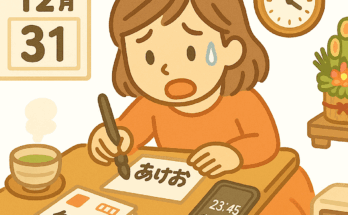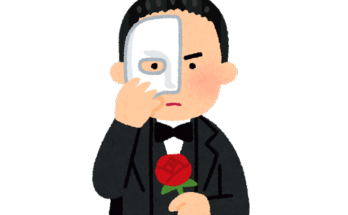Have you ever heard of the Japanese word “cushion words”? Today, I want to talk about some of the most polite Japanese words, “cushion words.” The Japanese language has honorific language that clarifies differences in position, and expresses respect and concern for others. In addition to this, You can use “cushion words” to softly convey your concern for others when you ask for, request or refuse something. To be honest, Japanese people are also often uncomfortable with the use of honorific language because of its complexity. In comparison, cushion words are easier than honorific language because they have a fixed pattern of usage. Cushion words are often used mainly in business situations because they allow you to speak with consideration for the other person, but you can also use them with strangers and friends in situations that you need. Why don’t you try using cushion words for smooth communication with strangers and business people?
(1) Why do you call them cushion words?

Imagine you are about to sit on a hard chair like in this picture. If you sit directly on it, your back will hurt from the back of the chair. But when a cushion is placed there, there is no pain. Words that soften the next sentence by placing them before a request or a refusal, in other words, words that act like a cushion, are called cushion words. These words have the same function as the English expression “I’m sorry, but~” ”If you don’t mind,~”, etc.
(2) Types of cushion words
In this article, I will introduce some typical cushion words that can be used in three situations: requests, asking, refusals and apologies.
| Situation | Japanese | English with same meaning |
| Requests | ・Osore irimasu ga~ 恐れ入りますが ・Otesuo okake shimasu ga~ お手数をお掛けしますが ・Kyoushuku desu ga~ 恐縮ですが | ・I’m sorry, but~ ・I hate to bother you, but~ ・I’m afraid~ |
| Asking | ・Shiturei desu ga~ 失礼ですが ・Sashitukae nakereba~ 差し支えなければ | ・Excuse me, but~ ・If you don’t mind (my asking)~ |
| Refusals/ apologies | ・Moushiwake gozaimasen (arimasen) ga 申し訳ございません (ありません) が | ・I’m sorry, but~ |
★The phrase ”Osore irimasu ga~ 恐れ入りますが~” is a versatile phrase that can be used in any situation!
(3) The way to use
【Step 1】 Use Cushion words +(request / asking / refusals / apologies)
Start a sentence with a cushion word for the situation, then tell what you want to say.
【Step 2】It is better to use “~shite itadakemasuka? していただけますか?” at the end of the sentence when asking or making a request.
If you use “~shitekudasai.してください,” it has the same meaning as the English word “Please,” at the end of a sentence when you request something, the other person may feel that you are demanding or ordering them to do something. So when making a request, you can use “~shite itadakemasuka? していただけますか ,” which means the same as “Would you~” ”Could you~” in English, to give a softer impression.
【EXAMPLE】
■Request

1. Osoreirimasu ga, tetudatte itadakemasuka?
恐れ入りますが、手伝って いただけますか?
(=I’m sorry, but could you help me?)
2. Otesu desu ga, ~ o kakunin shite itadakemasuka?
お手数ですが、〜を 確認 していただけますか?
(=I hate to bother you, but could you check ~?)
■Asking

1. Shiturei desuga, Yamada-san desuka?
失礼ですが、山田さんですか?
(=Excuse me, but would you perhaps be Mr. Yamada?)
2. Sashitukae nakereba, dennwabango o oshiete itadakemasuka?
差し支えなければ、電話番号 を教えていただけますか?
(=If you don’t mind, can you tell me your phone number?)
■Refusals/ apologies

1. Moushiwake gozaimasen ga, yakusoku no jikan ni okure soudesu.
申し訳ございませんが、約束の時間に 遅れそうです。
(=I’m sorry, but I’m going to be late for my appointment.)
2. Moushiwake arimasen ga, watashi niha dekimasen.
申し訳ありませんが、私にはできません。
(=I’m sorry, but I can’t do it.)
【Conclusion】
Lastly, in writing this article on cushion words, I also looked up English expressions. I learned that there are many words to express concern for others in English as well as Japanese. I believe that the thoughtfulness to use words that do not hurt the other person or cause discomfort is universal. How you use your words will make or break your relationship with them. I have introduced some of the cushion words in this article. I hope you have a chance to use them and have good communication with Japanese people. Plus, when you use cushion words, it’s fun to see Japanese people who must be amazed and say, “It’s amazing you can use cushion words!”
Business training instructor. I’m originally from Takarazuka in Hyogo Prefecture in the Kansai area. Now I live in Yokohama. I love exercising, traveling, watching movies, art, and nature.





 HTJ has a YouTube page! Check it out
HTJ has a YouTube page! Check it out
Hi Mieko,
Thank you for writing this article. It is very interesting and useful. My colleague Niwano-san at HarperCollins Japan was a master of these kinds of cushion words. She used “Osorerimasu-ga” so much that I thought it was an everyday Japanese word!
Write-on!
– Manning